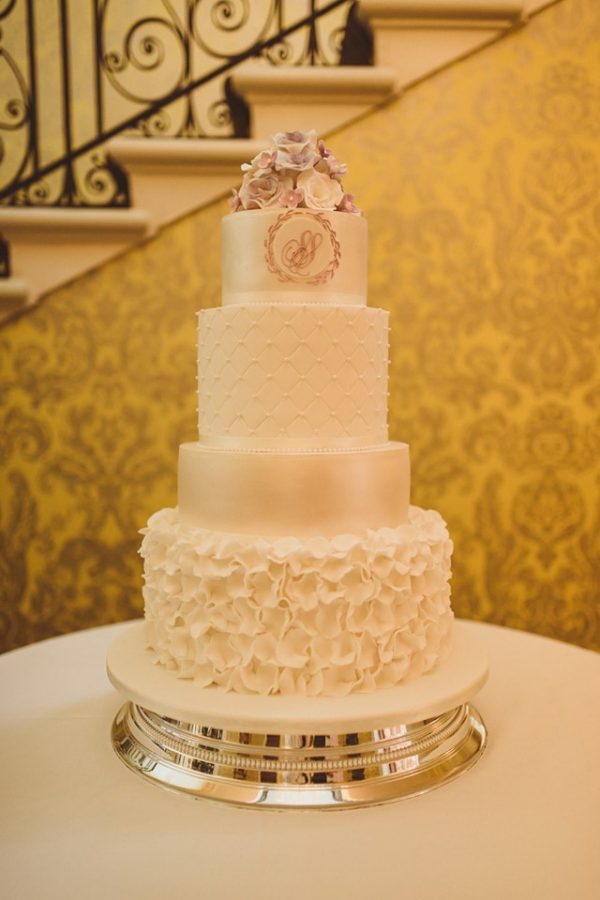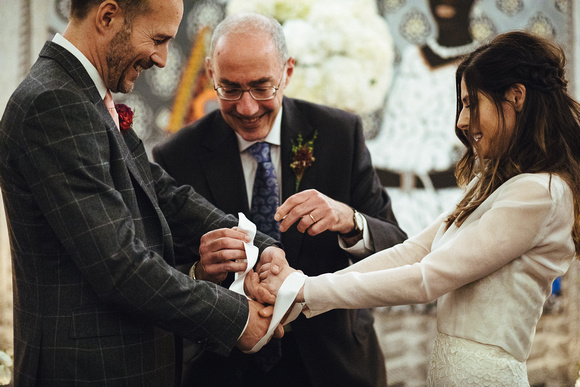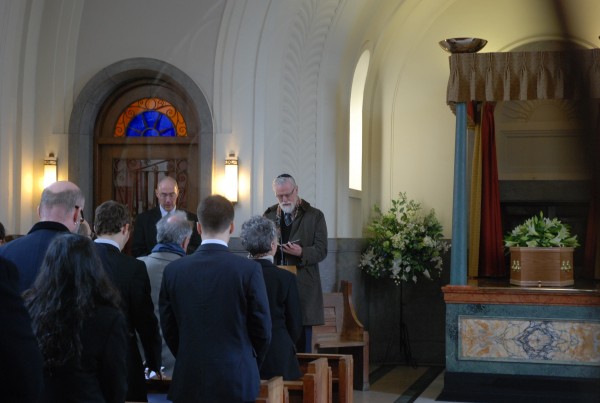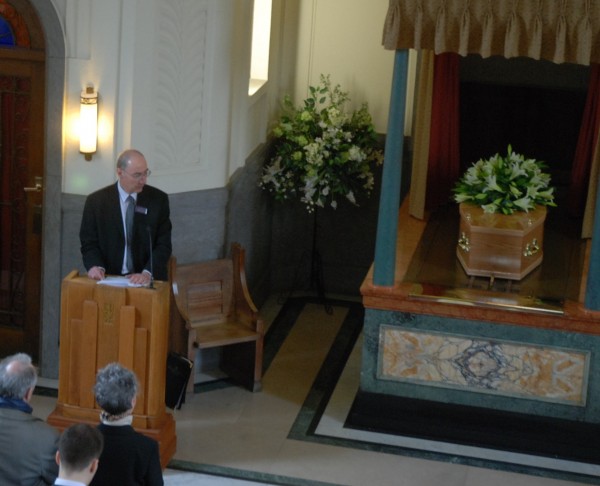
by Michael | Oct 21, 2019 | Blog
Yum! You’ll
be licking your lips at the prospect of this blog, after reading the title!
Well, I’ll
try and keep it light, but it’s an important area.
As far as legal registration is concerned, we’re only talking about births, deaths and weddings. You don’t need any paperwork to celebrate a Vow Renewal or handfasting.
With births,
the registration is almost always done at the hospital (although I realise that
not everybody has their baby there). For deaths, the doctor (either at home or,
again, at the hospital) usually provides the death certificate, and you take it
to the local Register Office.
With
weddings it’s a little more complex.
Religious weddings
If the wedding is conducted in an Anglican church or synagogue, or according to the Quaker service, then there is normally a member of the church (etc.) present who is a registrar. They will ensure the legalities are carried out.
If you’re
having a marriage anywhere else, then things are different. That’s where it
gets more complicated!
Register Office
You need to register your intention to marry at least 28 days in advance. Then you go to the Register Office (by appointment) with two witnesses, and can get legally married. The ceremony will be totally secular and fairly standardised (so next-to-nothing to differentiate one service from the next).
You don’t necessarily have to go to the Register Office. Legislation is going to change, but for now, provided the wedding venue has four solid walls and a roof (basically), the registrars can come out to the venue and conduct the wedding for you there. (This will cost several hundred pounds more than attending the Register Office.)
Another alternative
You can have a civil celebrant-led ceremony. This may allow you a religious (or partially-religious) or a secular ceremony – but the choice is ultimately yours. The big thing – setting this option out from the other two – is that you can have the ceremony of your dreams. Why? Because the celebrant should work with you in advance to respect and enable your vision. It’s all about personalising, rather than following a standard rubric. That means your ceremony will be unique, and can reflect your personalities and beliefs.
The downside
is that (again, there is new legislation in the air for England & Wales)
currently a civil celebrant’s ceremony has no legal validity. So you still have
to have the Registrar-led ceremony (either in their office or at your chosen
venue, if it’s suitable) in addition.
Either way,
once you’re legally married, you can have the dream ceremony, conducted by the
celebrant, afterwards. To all intents and purposes, that will be your real
wedding!
Hopefully, not so painful, was it? But if you have any questions, please feel free to ask me.
Photo: Matt Penberthy

by Michael | Jul 15, 2019 | Blog
People often ask me if they can include something humorous in a ceremony. “What will people think?” they ask.
Of course,
the answer depends on what expectations and intentions they may have. What
effect are they looking for?
Initially, my response is “yes”. “Certainly”, if it’s a wedding and “with care”, if it’s a funeral.
The traditional response
How traditional do you want your ceremony to be? If that’s your chosen path, then don’t expect much hilarity from the full Church service.
I officiated at one (secular but traditional) high society wedding, where the family were very keen that all appearances were correct and that guests would have no grounds to find fault with any part of the service.
Actually, I wondered whether it would mean more to the guests to witness a moving, sincere ceremony, rather than a fabulous spectacle. And if it entertained a bit, thanks to a touch of humour, all the better!
An alternative approach
At my “usual” weddings, however, (often, part-religious or secular), there is scope for personalising the ceremony. Normally, I advocate including some “serious” elements but also a few lighter moments. The ring blessing and vows, say, could be earnest – but the vows might include some humorous promises (based on personal idiosyncrasies of one of the couple).
I like to put in the couple’s story, where possible. This frequently offers scope for humour.
Humour in funerals
As I have implied, humour is more likely to be expected – and accepted – at a celebratory event.
However, although funerals should offer the opportunity to grieve, I believe they should also be a celebration of life and therefore should not exclude well-placed and tasteful humour.
Ad-libbing requires great care. A funeral will almost never be the place to be controversial or crude.
The best place for humour is in the eulogy or personal tribute. If the deceased had a special saying, favourite joke or some unique characteristic, reference to that will be appreciated by most who knew them. I loved the lady, who would go ballistic whenever Philip Schofield appeared on TV. When I referred to this, everybody – especially, the family – recognised, appreciated and enjoyed it!
If that’s appropriate for the deceased, why not have it?!
There’s nothing – in theory – to stop you having a whale of a time at a funeral. Sometimes, everyone is encouraged to wear a particular football shirt, say, to mark the deceased’s passion. The tone of such a service is likely to be quite light!
I hope I’ve made it clear that the tone you desire for weddings or funerals is ultimately down to you. Discuss it with your celebrant, and you can have the ceremony that suits and keeps a smile on everybody’s face.
Photo: www.lyndseygoddard.com

by Michael | Jul 30, 2018 | Blog
My summer holidays this year have been relatively tame (not that I didn’t enjoy them a lot): a couple of nights in the Cotswolds and then a couple more with friends near Cologne.

One oddity, when I do go away, is that – however quiet business has been up till then – enquiries suddenly descend on me.
A few years back, the Gordon family were literally on the doorstep with our suitcases, about to go away (also to Germany), when the phone rang. My wife ordered me to take the call, and it turned out to be an inquiry for a job I was later to get. So that worked well.
Similarly, this year, the day we left, I was contacted about putting together a wedding ceremony in Hertfordshire for a Chinese couple. The downside is that I have incredibly little notice, but luckily I have become quite proficient at coping with “lastminute.com” ceremonies. I think I’m going to manage it!
While we were away, I was also contacted about a small wedding in someone’s home in just over a month. Well, that would not normally be too much of a challenge to me. However, what I omitted to mention was that my correspondent seems very laid-back about responding, and this ceremony is supposed to take place in Wisconsin! At the time of writing, I don’t know if this will come to pass at all.
I was also asked to do a burial service on the one day I had between my two trips – I guess that timing is king!
And just before our holiday, I was booked for another last minute ceremony for a couple of weeks from now. Holiday or no holiday, business could be worse …
Strange, perhaps, but that is typical of the flurry of activity that seems to accompany my modest holiday plans!
Mind you, if it’s going to bring me more work, maybe I should be taking more holidays!

by Michael | Feb 6, 2018 | Blog
I doubt if such a thing exists as a “perfect” funeral. However, I know that Funeral Directors and celebrants like myself normally do their utmost to satisfy needs and desires.
I ought to point out that, as a civil celebrant, my comments here refer to secular or part-religious ceremonies only.
Problems
A difficulty arises if you come up against feuding families. Then compromise is the best you can hope for.
Occasionally, demands are not practical. We were asked to put on a short video display about the deceased during the crematorium service. Unfortunately, the crematorium simply didn’t have the technology to permit this. So we had to say no. (At least I could suggest that the video could be shown at the hotel where the reception would be held.)
Compromise
Not infrequently, all that people want is a fairly standard service. It might – or might not – be religious. It may have a few religious elements. All that is fine. They are not always aware that there are time limits. People simply can’t always have everything they want (unless they book a double slot). They may have to shorten the service to accommodate the eulogy. Or vice versa.
Theme
People may want a theme. I conducted a very Chelsea-heavy service once. (Not easy for a Spurs supporter!) But why not?
Music
What sort of music should there be? Well, that depends on each individual case. People assume they should only play religious or classical music, but there’s no reason for a celebration of life to be too solemn (if that’s the intention). My favourite choice of exit music – for a 92-year-old lady who loved Freddie Mercury – was “Killer Queen”. Guests couldn’t help but smile – indeed, I defy anybody not to, even at such a moment!
Synthesis
How are all these differing needs/wishes put together?
The home visit is key. The celebrant will ask questions, make suggestions and take away a feeling for what is wanted. Then appropriate readings and music can be chosen. The tone can be agreed on.
I always try to get a draft off to the family as soon as possible. Then they can decide if they want anything changed, and – hopefully! – there’ll be time to organise that.
The result might not be perfect, but, hopefully, it will be as near as humanly possible.
If you would like help planning a service (it could be during somebody’s lifetime, incidentally), feel free to give me a call.

by Michael | Aug 29, 2017 | Blog
You don’t expect things to go wrong at a funeral, do you? After all, everybody goes to great lengths to ensure that things go smoothly. Funeral Directors put themselves out to ensure that needs are met. The staff they use (celebrants, crematorium staff, etc.) are professional, dedicated people.
So you have every right to expect a fitting funeral service.
And, to be fair, you usually get one.
But crematoria have machinery. And, even more significantly, funerals involve human beings. With the best will in the world, things that involve such variables can go wrong.
Sorting out a difficult situation
Last Sunday, I was booked to conduct a funeral at Golders Green Crematorium. As is my custom, I arrived about an hour early. I soon received a phone call from the Funeral Director. The power supply at the Crematorium had been cut. They could supply no music and the coffin would not be able to pass into the cremator.
Somehow, at such short notice, a switch was arranged. The venue became St Marylebone, East Finchley, a few miles away. Two Golders Green staff transferred across, as the ‘home team’ doesn’t work on Sundays. One staff member would operate the cremator at the end of the service and the other would assist with the music and getting people in and out of the chapel.
When we arrived, someone realised that flowers had originally been sent to Golders Green, and were still there! The only way to retrieve them was for the chapel assistant to start the music, shoot back to Golders Green, collect the flowers and return in time for the final piece of music about half an hour later!
It didn’t quite work! Traffic! Luckily, the Funeral Director had been briefed and was able to play the music at the end (and the assistant arrived with the flowers only a few minutes later).
Most people had no idea what had been going on behind the scenes!

A glaring blunder
Sometimes people can’t help but notice that something has gone wrong!
A little bizarrely, a family had asked for us to include a rather unusual and quite difficult hymn that they didn’t themselves know. There would be an organist, but then hymn was so unfamiliar that I felt I couldn’t lead it. Moreover, most of the guests wouldn’t know it and be able to join in. Potentially embarrassing.
So it was decided to play a CD of the hymn, and we might be able to join in with that.
On the day, I went through the service in advance with the crematorium assistant, so that he’d know what music to play, and when. He’s been working there 25 years now, and really knows his stuff, so I had no concerns there.
When it came to the hymn, I asked people to stand and join in and waited for the music to start. Nothing happened. I therefore announced it again and waited. Nothing. So I had to move on, apologising for what I assumed was a technical fault. As we rose for the exit music, the hymn suddenly sounded!
What had happened?
The assistant had simply forgotten that the hymn was to be cued up by him (rather than played on the organ), and had gone out (to show the Funeral Director where the flowers would be taken at the end).
Who could have predicted that?!
Fortunately, out of the 125 funerals I have so far conducted, those two incidents were the only times that things didn’t go as smoothly as we would have liked!






